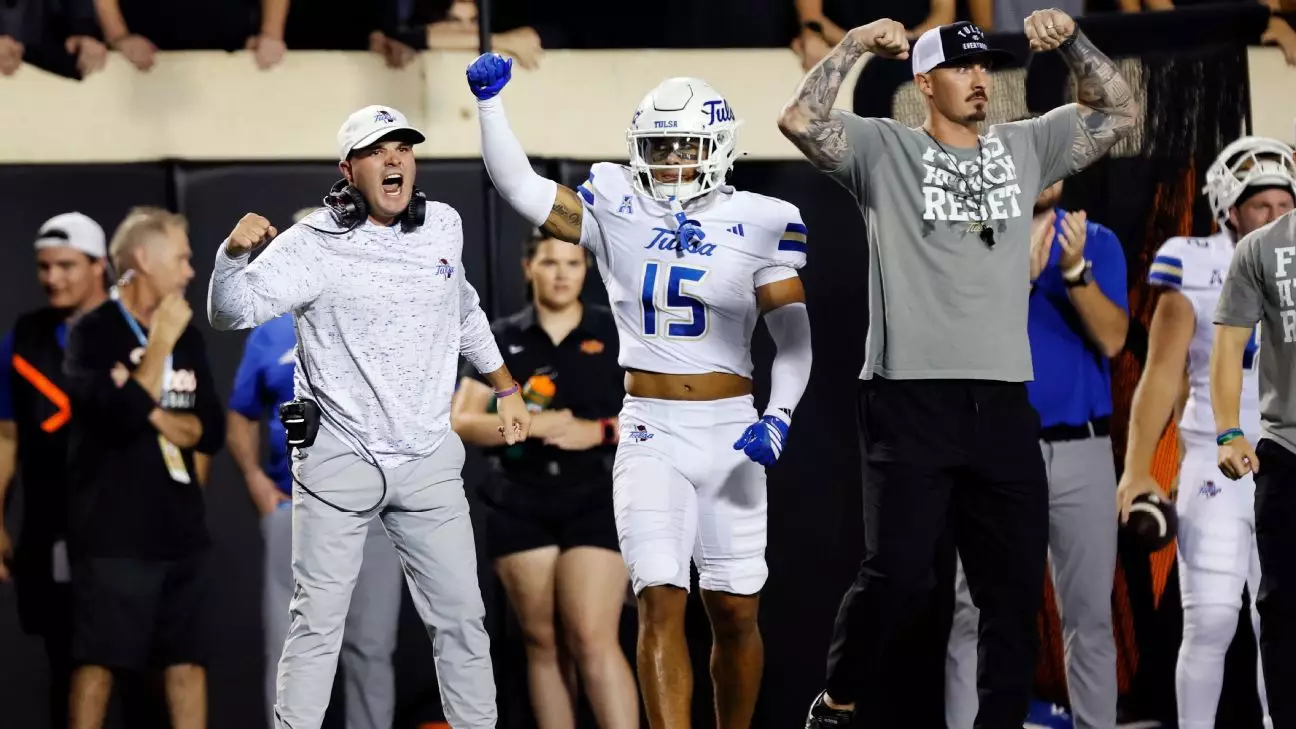In the world of college football, victories are often cyclical, dictated by recruiting, funding, and institutional prestige. Yet, Tulsa’s unexpected triumph over Oklahoma State after 27 years defies the narratives that favor the traditional powerhouses. This victory is not merely a result of skill on the field but a testament to the importance of strategic resilience and the belief that no drought is insurmountable. It challenges the complacency that can develop in programs grounded in routine success, emphasizing that perseverance and tactical reinvention can turn the tide even when the odds lean heavily against you.
This win underscores a vital lesson: success in competitive arenas often hinges on an organism’s ability to adapt in real-time rather than rest on historical dominance. For Tulsa, this victory is a statement that rebuilding and shifting narratives requires courage, innovation, and unwavering focus. It questions the complacency of programs that often rest on their laurels, encouraging a mindset that champions continual evolution, regardless of long-standing setbacks.
Leadership and Strategy: The Unsung Heroes of the Upset
Tulsa’s coaching staff, led by Tre Lamb, exemplifies how strategic ingenuity can overturn entrenched disadvantages. Lamb’s game plan capitalized on Oklahoma State’s vulnerabilities and exploited a perceived underdog’s motivational edge. The offensive approach focused on a disciplined, balanced attack, highlighted by Baylor Hayes’ efficient passing and Seth Morgan’s reliable kicking. The simplicity of these plays belied their significance—they were executed with precision, demonstrating that mastery often comes from humility and attention to detail rather than reckless gamble.
Furthermore, Tulsa’s defensive unit deserves credit for their disciplined resistance against a team desperate for redemption after a humiliating loss to Oregon. Holding Oklahoma State to a mere 3 points in the first half was no accident; it was the result of tactical planning and mental resilience. It proves that even in the face of overwhelming odds, a disciplined defense can dismantle robust offensive schemes from the opposition. Such strategic resilience should serve as an example to programs that often neglect the importance of adaptability and mental toughness.
This victory also spotlights the importance of leadership at the player level. Baylor Hayes, amidst the noise of a high-pressure game, maintained composure, completing 23 of 36 passes without an interception. His calm decisiveness underpins the importance of mental discipline—an often-overlooked trait that elevates performances beyond athletic ability. Similarly, young players like Zane Flores, emerging in the spotlight, demonstrate that youthful grit combined with strategic coaching can produce extraordinary results. This underscores the power of cultivating perseverance and resilience in athletes, echoing the broader societal need for these virtues in overcoming personal and collective struggles.
Challenging the Status Quo: A Wake-up Call for Power Programs
Oklahoma State’s fall from grace is a stark indicator of how quickly dominance can erode when core leadership and execution falter. The historic loss after a 69-3 debacle reveals vulnerability in systems that appear firmly entrenched. It raises important questions about complacency and the necessity for continuous evolution within established power programs. The Long-standing streak of losses following setbacks exemplifies how a lack of innovation and adaptability can lead to extended periods of underperformance.
This game serves as a reminder that the hierarchy of college football must not be taken for granted. The supposed invincibility of elite programs often depends on momentum, investment, and leadership that prioritize complacency rather than reinvention. Tulsa’s victory serves as a wake-up call: no program is immune to decline without strategic vigilance and a willingness to challenge oneself beyond comfort zones. In a broader societal context, it encourages institutions—be they educational, governmental, or corporate—to remain vigilant, adapt rapidly, and refuse to accept stagnation as an endpoint.
Instead of viewing established powerhouses as untouchable, this upset promotes a centrist perspective rooted in the belief that resilience, strategic innovation, and mental toughness can level the playing field. It advocates for the democratization of success, where opportunity arises not just from historical privilege but from a proactive, adaptable spirit working tirelessly against long odds. Tulsa’s victory exemplifies this truth: sometimes, the most profound victories come not from innate superiority but from the relentless pursuit of excellence against the grain, challenging the myths of permanence that dominate traditional hierarchies.


Leave a Reply